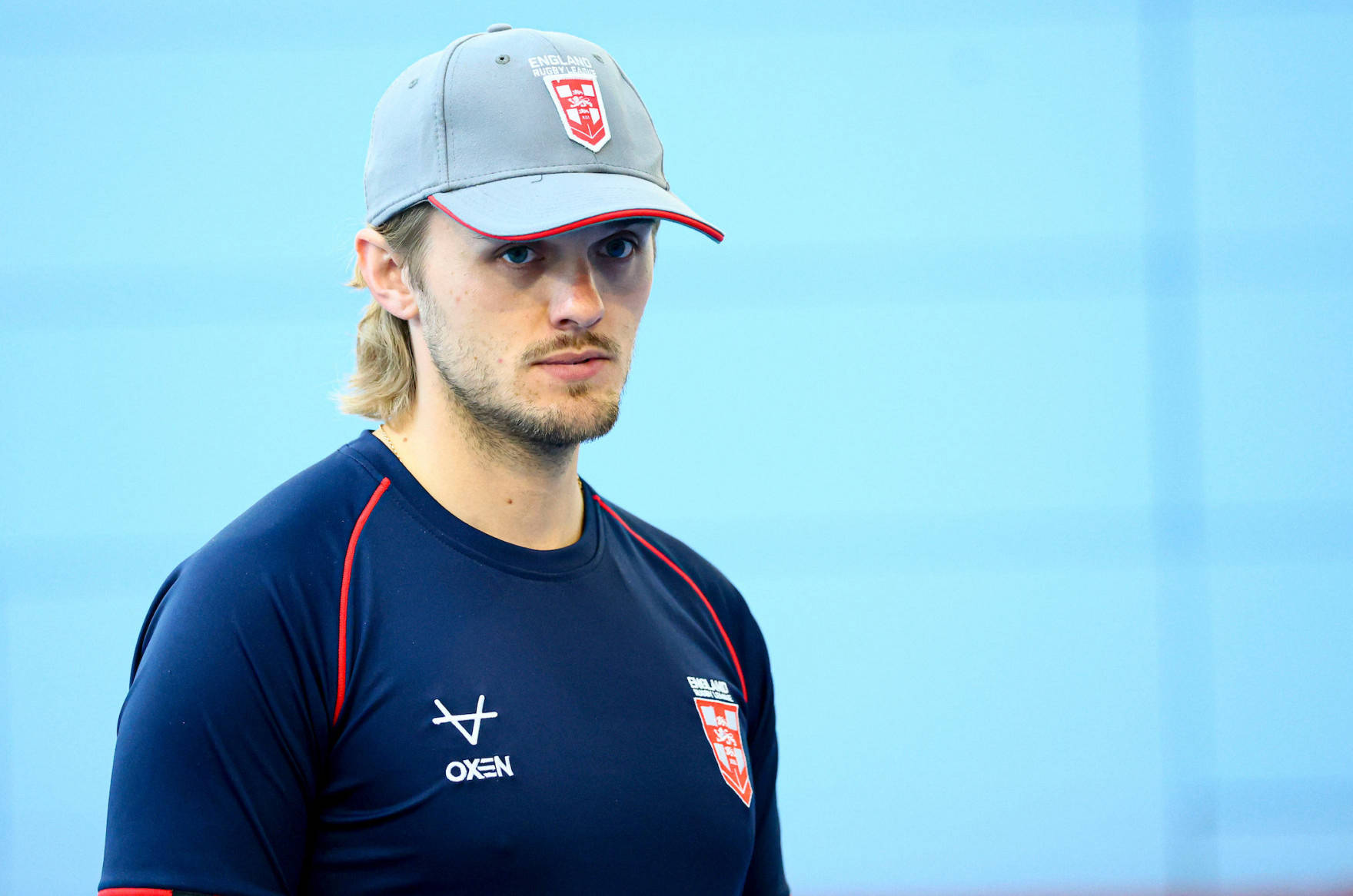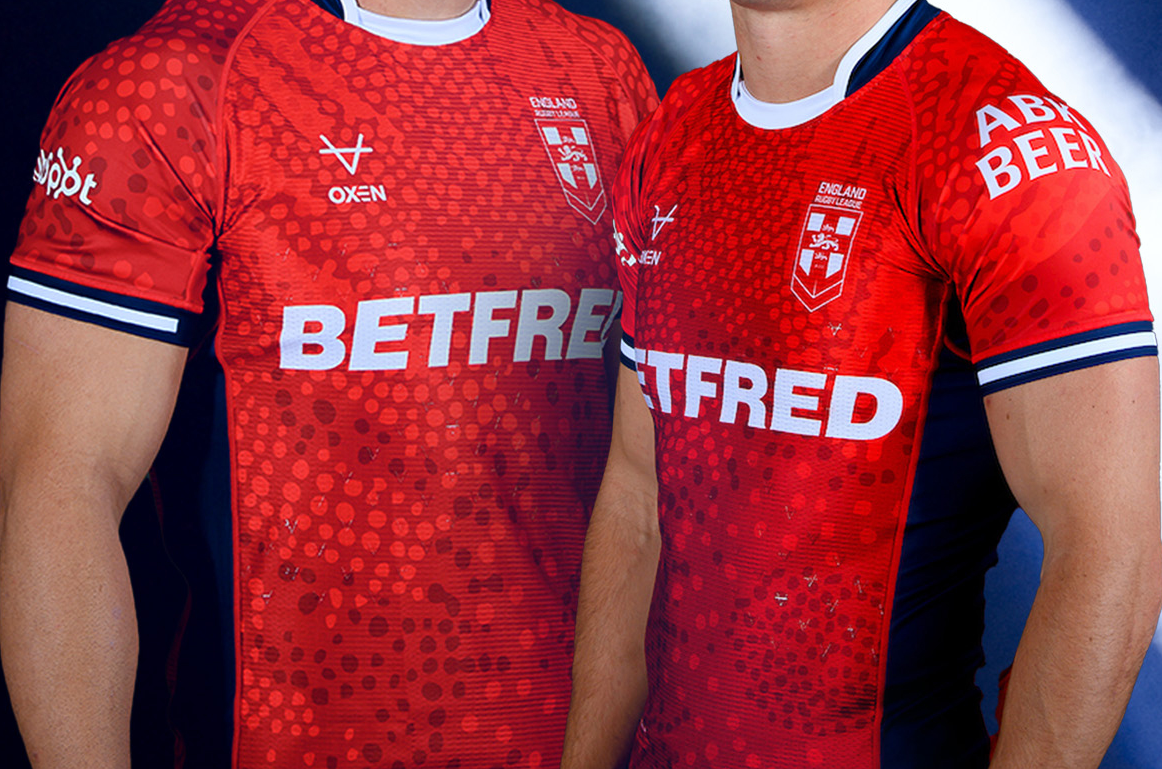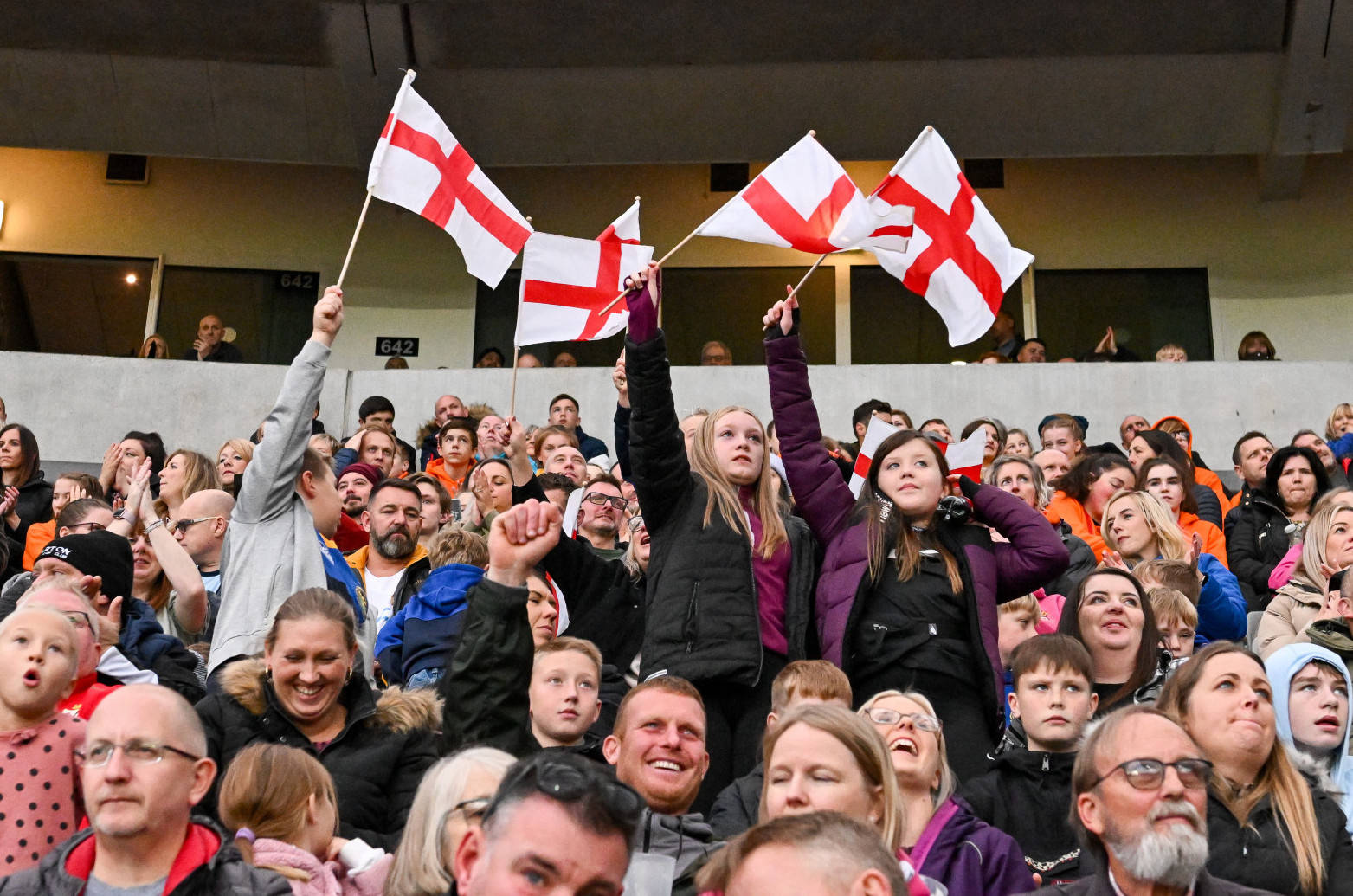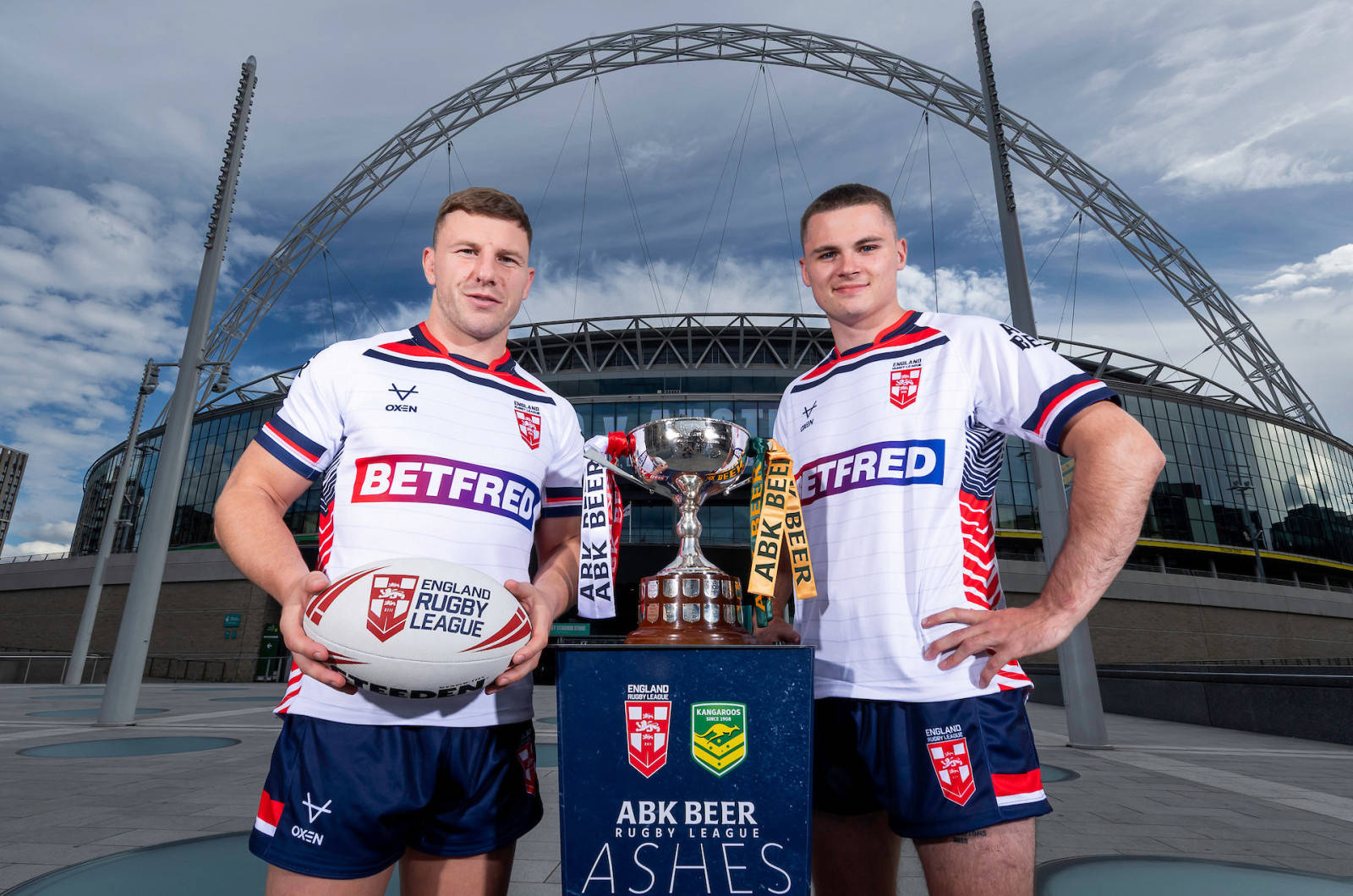
Three souvenir programmes will be available to Rugby League supporters and collectors for the five England internationals this autumn – all designed and produced by Curtis Sport, and available at each of the match venues, and also to order online.
The first edition, for the first Test between England and Tonga at the Totally Wicked Stadium, is available now - England v Tonga - The First Test - 22/10/23 (curtis-sport.com)
It’s packed with content, with exclusive interviews with the head coaches Shaun Wane and Kristian Woolf, tributes to retiring legends James Roby and Sam Tomkins, and much more.
There’s also a strong Tongan flavour – and here’s a hint, as respected international Rugby League writer STEVE MASCORD reflects on the journey of the Mate Ma’a, from a memorable northern hemisphere debut at Wilderspool in 1995 to Sunday’s historic Test a few miles away in St Helens.
It was all too much for Taufa'ahau Tupou IV.
The date is October 8, 1995. The place is Warrington’s much missed Wilderspool Stadium. After a series of eye-catching performances in the Pacific Cups and the World Sevens, Tonga have been invited to real thing, a 13-a-side World Cup.
And what a way to open their campaign: against ‘big brother’ New Zealand, boasting the likes of Matthew Ridge, Richie Barnett, Stephen Kearney, Stacey Jones and Henry Paul. The 300-1 outsiders led by Duane Mann and made up mostly of youngsters and journeymen walk out on a sunny afternoon with - seemingly - nothing to lose.
With 10 minutes to go, the Tongans led Frank Endacott’s superstars 24-12. The 8000 crowd sounded like 80,000 and the Kiwis fought their way back to 24-24, with the clock ticking down to zero.
It was about then, according to rumours that spread afterwards, when the King Of Tonga - named in the first paragraph here - fainted. Today, there is no concrete evidence that King Toupou was there. No photos. No quotes. Perhaps it is an urban myth. If he was, no doubt the chilly conditions were a bit of a shock - but the idea of beating New Zealand would have taxed his nervous system every bit as much.
No-one - presumably aside from those charged with reviving him - knows how long he was unconscious or whether he saw Ridge kick a drop goal to pull the contest out of the fire for the Kiwis. But that’s what happened.
And it was the start of two trends which endure to this day: the team that has come to be known as Mate Ma’a frightening the life out of the leading Rugby League playing nations and the ruling class of Tonga taking a very keen interest in that team’s fortunes.
Half of coach Kristian Woolf’s side flew into Heathrow last Friday, the other half into Manchester. There have been many rungs of Rugby League’s ladder scaled since 1995 and this is another hugely significant one.
Tonga is the first tier-two nation to be afforded a three Test series against England in Old Blighty. Considering the first tour was in 1907 by Albert Baskerville’s All Golds and ever since it’s just been Australia and New Zealand taking turns, it is an enormous step forward for the entire sport - commercially and culturally.
The story of how Tonga, a nation of 45 inhabited islands out of 171 in total with population of 104,000, came to join this select club starts as recently as 1986.
The Pacific Cup was held partially in the country - even though there was no competition. A national side was cobbled together by players based overseas and enough interest was created for a local league to be established two years later. By 1992, the men in red were into the final of the fabled competition, losing to Western Samoa.
A huge leap forward for Tonga - like so many other countries - was Colin Love’s World Sevens in Sydney.
There, Australian audiences encounter the hard-hitting men of granite for the first time in the first half of the nineties.
The 2000 World Cup side included a promising young Bulldogs forward called Willie Mason and future Australian international Brent Kite, while in 2008 Tony Williams, Michael Jennings and Antonio Kaufusi sprinkled some stardust with the Tongans going to court to fight a ruling they must include domestic players in their squad. It would be unsafe, they argued successfully.
In 2013 Kite was captain and was joined by Konrad Hurrell, Ben Murdoch-Masila and Jason Taumalolo. A loss to Scotland and a draw with Italy meant a surprise elimination in the pool rounds, however.
It wasn’t until 2017 that 30 years of rapid evolution bubbled to the surface with volcanic force, driven by another explosion - the rapid increase in Polynesian athletes playing in the NRL. Five players - Taumalolo, Andrew Fifita, David Fusitu'a, Sio Siua Taukeiaho and Manu Ma'u - chose to play for Tonga instead of New Zealand and Australia.
Rugby League has a tiering system which allows players who miss selection for Australia, England and New Zealand to be distributed among other countries for which they properly qualify at major tournaments. It’s the same Robin Hood ethos that gave us State of Origin.
When that structure was conceived for internationals, however, no-one seriously considered the likelihood of someone defecting from a tier one team that actually wanted them.
The seismic shift was the making of the 2017 World Cup with Tonga pushing England all the way in one of the most dramatic and storied matches in the sport’s entire history, watched by a sea of red at Mt Smart Stadium.
But Tonga’s finest achievement was yet to come.
On June 11, 1951 at the Sydney Cricket Ground, France became only the third national team to defeat Australia at Rugby League, triumphing 26-15 in front of 60,160 people at the Sydney Cricket Ground.
For the next 24,981 days Papua New Guinea, Samoa, Fiji, Lebanon, Wales, Scotland, the United States, Ireland and Papua New Guinea all had shots at being the fourth, without success.
But on November 2 2019, Central Auckland was brought to a standstill by celebrating fans after Tonga became only the fourth country - counting Great Britain as one entity - to beat Australia.
The 16-12 triumph at Eden Park was one of the most significant results in a lifetime - coming 68 years after Australia had previously lost to anyone new. It set up a gripping World Cup which was to be played in 2021 but was put back a year because of Covid.
In the end, an unmissable and profoundly compelling quarter-final loss to Samoa, 20-18, led Woolf to conclude the Mate Ma’a had underachieved at that tournament.
Our story ends where it started, in Warrington, and in defeat. But the first defeat was considered an outrageous over achievement 27 years earlier. This year, with diaspora around the world watching on, nothing less than victory is acceptable.
As the fifth-ranked side in the world, Mate Ma’a are their country’s highest-profile cultural exports and a source of pride for Tongans everywhere.
If only T?ufa??hau Tupou IV had waited until this month to regain consciousness.




